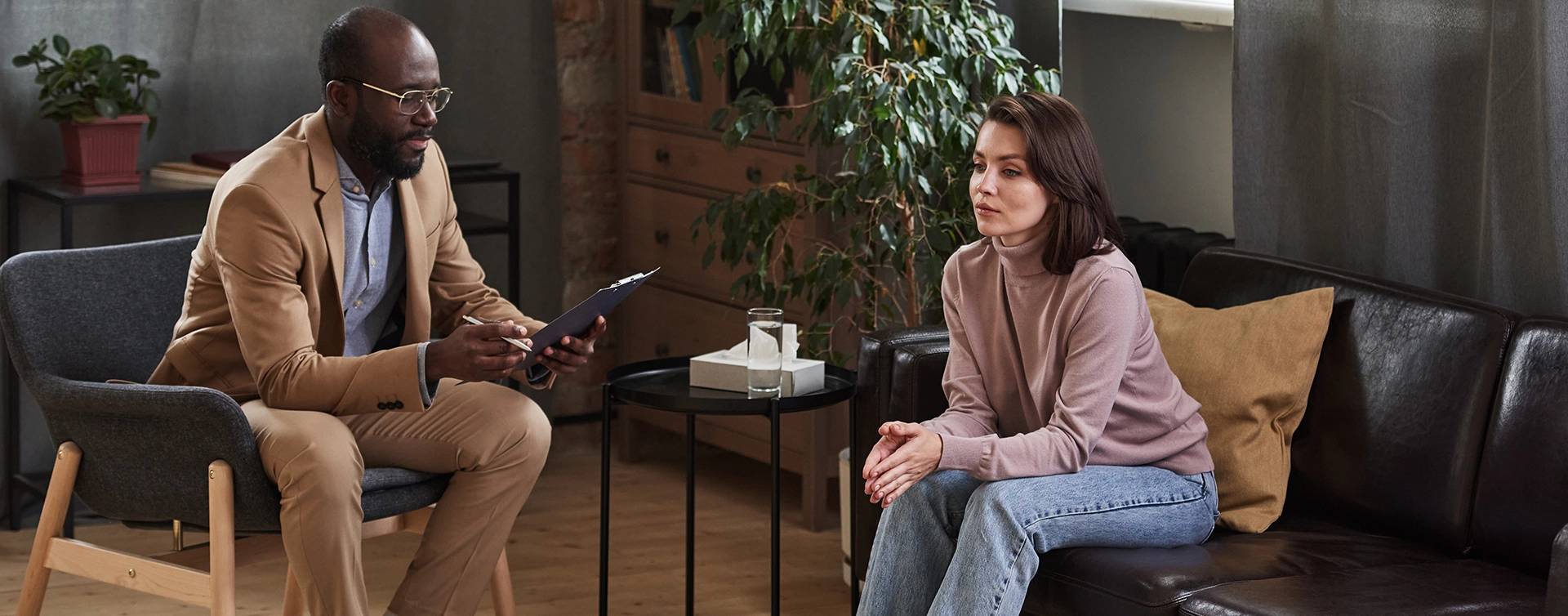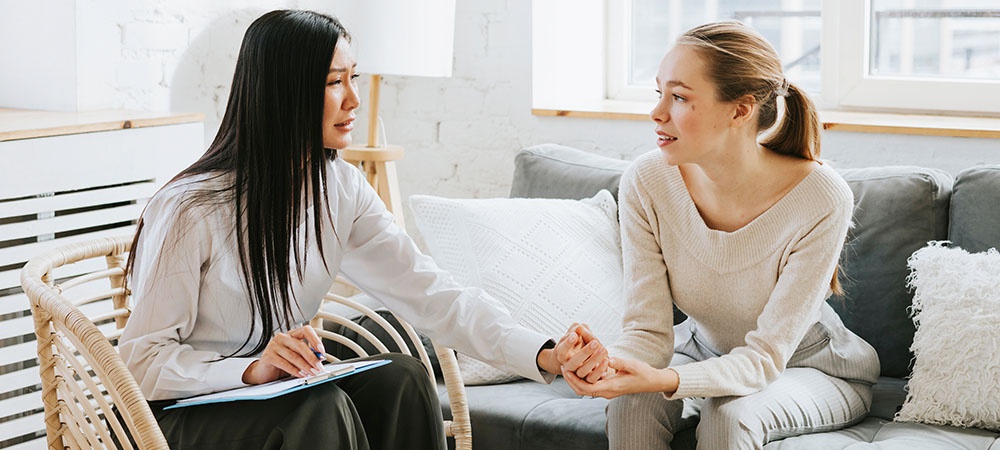
The common idea of therapy is a single therapist working with an individual client. But therapy can come in the form of a therapist having healthy conversations with two partners in a relationship at the same time.
This form of therapy is called couples therapy, and it’s hugely effective for helping build a healthier relationship with open communication channels. In fact, there are specific differences between individual and couple’s therapy.
This blog covers the differences between both therapy forms, what to expect and which is best for your situation.
Here’s a closer look at individual therapy vs. couple’s therapy.
Individual therapy and couple’s therapy consist of two different forms of psychotherapy used to address various issues.
Individual therapy focuses on the individual alone, helping them identify their thoughts and beahvioural patterns. Individual therapy involves working through one person’s mental health concerns, social issues, and personal goals.
Couples therapy brings two people together with a therapist to provide structure and guidance to improve communication and resolve differences between the two individuals. Through such intervention, both parties can better understand each other while learning how to create healthier relationships within the broader context of life.
Both individual and couples counselling share common features such as improved communication skills, compassion towards others, and increased self-awareness. But, each type defines its unique path towards growth so clients can succeed individually or within their relationship.
Your therapy experience can look very different depending on whether it’s individual or couples-based.
Individual therapy focuses solely on the individual’s problems and working towards self-improvement through their journey. It can involve talking through events from one’s past as well as discussing techniques for bringing about change in the present.
On the other hand, couple’s therapy focuses on the issues that couples face together, such as communication and trust issues, disagreements around parenting styles, or problems with intimacy. Through this type of work, each partner digs deeper into what is happening inside their relationship — they learn cooperative problem-solving skills while addressing unresolved issues.
While there are many similarities between individual and couple’s therapies, it’s important to consider which approach better meets your needs before embarking on one or the other.

Couples therapy or individual therapy can be beneficial for relationships of all kinds. Whether you are in a committed marriage or a relationship that challenges you to grow, there are times when couples need extra guidance and help to achieve their desired outcomes.
Couples therapy aims to create a deeper understanding between both parties that helps them have healthier communication, better management of issues and emotions, and improved conflict resolution.
Individual therapy programs are ideal if you need a supportive environment for personal growth that encourages individuals to explore thoughts and feelings that may be too difficult to process independently.
Both therapies are life-changing tools that provide valuable skills needed to foster lasting connections with others while finding true fulfillment within yourself.
Now that you know the best therapy program between individual and couples counselling, your choice of counsellor is the next talking point. The decision of choosing a therapist is an important one, as the right person can help guide you through difficult times.
Depending on the form of couples or individual therapy you pursue, a first therapy session may involve discussing your history and unique circumstances.
Your therapist will ask you questions to understand why you’re seeking couples or individual therapy at this time. You’ll discuss your objectives for the treatment process, and the counsellor will provide insight into their approach for your sessions.
Additionally, you should ask any questions regarding the therapeutic process. At the conclusion of your session, your therapist will review any steps necessary to progress towards achieving your goals and provide guidance on how to apply what was discussed in the session.
Attending individual or couple’s therapy sessions requires some effort on your part to make the most of each session. It is important to come prepared to the sessions and clearly understand what you would like to work through and discuss.
This may include topics related to issues that began before you started therapy, any changes made since beginning therapy, and any relevant goals set during previous sessions. Setting these elements as the focus for individual or couples therapy can help you realign with your journey toward mental health and well-being.
Finally, express your feelings without any judgments during your counselling sessions. This level of honesty will help you move forward more clearly and effectively during each session with your therapist.

If you’re considering therapy, it’s important to understand the different types of therapies available and find the one that will work best for you.
Individual therapy and couple’s therapy each have their own benefits and drawbacks, and are ideal for different scenarios as described above.
Once you’ve found the right fit, don’t be afraid to ask questions and openly discuss your expectations for therapy. And finally, remember that making the most of your therapy sessions is a two-way street — be honest with your therapist and be willing to put in the work necessary to see results.
At Counselling Simply, our friendly counsellors are always happy to answer any questions about the counselling process and the best program for you. Call 1-855-852-4566 to talk to us today.
© 2022 All rights reserved
Made with ❤ by 2marketing